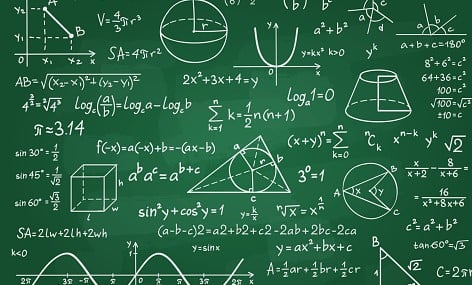Definition and Importance of Calculus
What is Calculus and its significance in mathematics
Calculus is a branch of mathematics that deals with rates of change and accumulation. It plays a vital role in understanding various concepts like motion, growth, and decay. By studying calculus, individuals can analyze and predict the behavior of functions and solve complex problems in areas such as physics, engineering, economics, and computer science.Common applications of Calculus in various fields
The applications of calculus are widespread and can be observed in fields like physics, engineering, economics, and computer science. From determining the optimal shape of structures to modeling complex systems, calculus provides the necessary tools to solve real-world problems effectively.Basic Concepts of Calculus
Understanding differentiation and integration
Calculus, a fundamental branch in mathematics, allows individuals to grasp the concept of rates of change and accumulation. Through differentiation, one can analyze how a function changes over time, while integration helps in calculating accumulated quantities. These principles are crucial in understanding various phenomena such as motion, growth, and decay, making calculus an indispensable tool in fields like physics, engineering, and economics.Fundamental principles of limits and derivatives
In calculus, the principles of limits and derivatives play a pivotal role. Limits determine the behavior of a function as it approaches a certain point, while derivatives provide information on the rate of change at a specific instant. These fundamental concepts are vital in solving mathematical problems and are extensively applied in real-world scenarios in physics, engineering, and computer science.
Challenges Faced by Students in Learning Calculus
Complex mathematical notation and symbols
When delving into calculus, students often encounter challenges with the complex mathematical notations and symbols used. Understanding these intricate symbols and algebraic expressions can be overwhelming, especially for beginners. It requires a keen eye for detail and a solid grasp of mathematical principles to decipher and work through these symbols effectively.Difficulty in grasping abstract concepts and theories
Another common challenge faced by students is the difficulty in grasping abstract concepts and theories inherent in calculus. Concepts such as limits, derivatives, and integrals may seem intangible at first, requiring a shift in mindset to comprehend. The abstract nature of these principles often calls for patience, practice, and a willingness to explore beyond conventional mathematics.
Lack of Foundation in Pre-Calculus Topics
Importance of strong algebra and trigonometry skills
Without a solid foundation in pre-calculus topics like algebra and trigonometry, students often face challenges in grasping the concepts of calculus. Strong algebraic skills are crucial for solving equations and manipulating variables, while a good understanding of trigonometry is essential for dealing with functions and their properties in calculus. Building a strong base in these subjects can significantly ease the transition into more advanced mathematical concepts.Common misconceptions leading to struggles in calculus
Additionally, common misconceptions about calculus, such as viewing it solely as a set of formulas to memorize, can hinder students’ learning progress. Calculus is not just about rote memorization; it requires a deep understanding of the fundamental concepts and principles behind the formulas. Addressing these misconceptions and approaching calculus with a problem-solving mindset can help students overcome their struggles and develop a more profound comprehension of the subject. When it comes to tackling calculus successfully, having a solid foundation in pre-calculus topics like algebra and trigonometry is key. Strong algebraic skills are vital for solving equations and manipulating variables, while a good grasp of trigonometry is essential for understanding functions in calculus. Overcoming common misconceptions about calculus, such as memorizing formulas, is crucial. Instead, focusing on deep comprehension and problem-solving helps students excel. Effective teaching methods include interactive lessons, real-world applications, and individualized attention. Recommended resources like textbooks and online platforms offer additional support to master calculus concepts effectively.
Facebook
Twitter
LinkedIn







